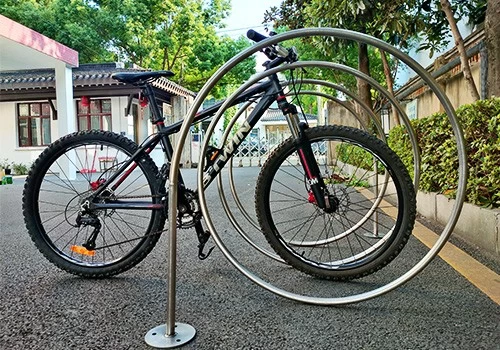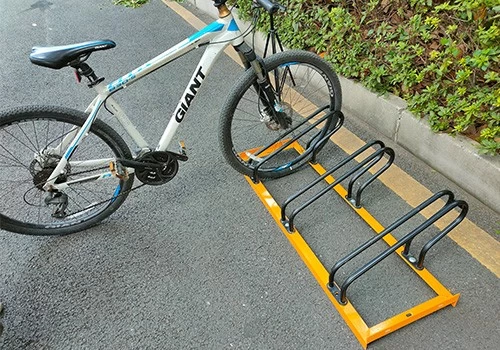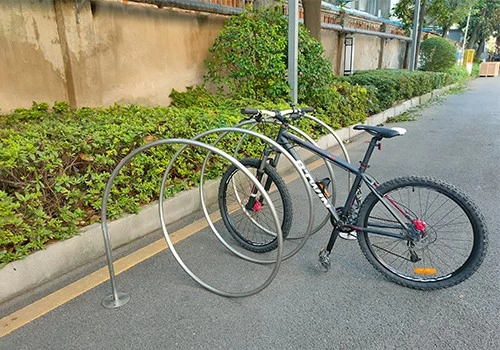Specifications
Model Number : PV-SC-001
Type: Bike parking and storage
Color:Yellow,Black,Green,Red,or Customized.
Style : both indoors and outside
Material : carbon steel
Loading: According to customer need
Size :195*23.2*75cm,200.55*23.2*75cm,or Customized.
Finish: hot-galvanized
Specifications
Model Number : PV-0081-01
Type: Bike parking and storage
Color:silver
Style : both indoors and outside
Material : carbon steel
Loading: According to customer need
Size :Height 1463mm, Depth 1114mm
Finish: hot-galvanized
Model Number : PV-0081-01
Type: Bike parking and storage
Color:Black
Style : both indoors and outside
Material : carbon steel
Loading: 2-10 bikes (According to customer need)
Size :Height 1463mm, Depth 1114mm
Finish: hot-galvanized
Model No.: PV-H1
Size: w605*D400*H330mm
Specification: Round tube:¢16*1.2mm
Finish: Power coated
Net Weight: 1.6 kgs
Packing size:6pcs/ctn
MOQ: 100pcs
Model Number : PV-0024-01
Material : carbon steel/stainless steel
Loading: according customer space size,we can design according the size
Size : W1977*D1130(depend on your parking space)*H2500mm
Finish: Powder coated ,hot-galvanized/electric polish
Packing size :2000*2000*2500mm(40 parking space )
Powder coated ,hot-galvanized/electric polish
Product number:PV-0046-01
Material:carbon steel
Specification:10.2*59*28CM or Customized.
MOQ:100PCS
Port:Shanghai
Trademark:PV
Model Number : PV-0081-01
Type: Outdoor Bike Parking Rack
Style : both indoors and outside
Material : carbon steel
Loading: 2-10 bikes (According to customer need)
Size :170.5*116*148CM
Finish: hot-galvanized
Model Number : PV-0055-01
Type: compact flat pack /slot
Color:black / silver /yellow/optional
Style :Outdoor/indoor
Material : carbon steel/ stainless steel
Capacity : park 6 bikes
Size : L1400*W1054*H840mm
Net weight :38KG
Finish: powder coating / hot galvanized /elctropolishing
Packing size :1490*860*160mm 1pcs/ctn
Product Name: Multi-Capacity Horizontal Two Tier Bike Parking Rack
Material: Carbon Steel
Finish: Powder coated
Post: 80mm * 80mm thickness: 3mm
Steel plate: thickness: 2mm
Dimension: 1325*1890*1830mm
Weight: 370 kg/set
Model: PV-0067-01
Material: stainless steel 304
Pipe: 50 mm* 2.5 mm
Size: 900*700 mm(L*W)
Surface treatment: polishing

Creating a bike-friendly community is essential in today's world of increasing urbanization, climate awareness, and focus on healthy lifestyles. One of the key elements in promoting cycling culture is providing accessible, secure, and convenient bicycle stand. Thoughtfully designed bicycle stand not only encourages more people to use bikes but also enhances urban aesthetics and reduces traffic congestion. Let’s delve into how bicycle stand plays a pivotal role in making a community bike-friendly and how it can be implemented effectively.
Bicycle stand should be available in strategic locations where cyclists need it most, such as near workplaces, public transport stations, shopping areas, and community hubs. Easy-to-locate parking helps potential riders feel confident that they’ll have a secure spot for their bike when they reach their destination. By placing bicycle stand facilities at key points, communities send a clear message: cycling is welcomed, supported, and safe.
Case Example: A city like Amsterdam offers ample bike parking at all major transit points, enabling a seamless transfer between cycling and public transport. This approach has successfully encouraged more people to bike daily, knowing their bikes are well-accommodated at their destinations.
Bike theft is a serious deterrent for many potential cyclists. Providing secure bicycle stand options can be a game-changer. Innovative solutions, such as double-deck bicycle lockers, high-security U-racks, and even enclosed bike lockers, reduce theft risks significantly. Including features like surveillance, sturdy locking points, and anti-tamper construction can boost cyclists' confidence in using these facilities.
Popular Solutions: Some communities employ smart bike parking racks equipped with IoT sensors, which not only provide real-time occupancy updates but also help in tracking and managing theft risks.
A bike-friendly community prioritizes ease of use. For example, incorporating accessible design features like modular racks, ADA-compliant designs, and easy-to-use locking mechanisms makes bicycle stand inclusive and hassle-free for everyone. Consideration for various bike types is also crucial, as many cyclists use e-bikes, cargo bikes, or bikes with trailers, which often require more space than standard racks provide.

Biking is an eco-friendly transportation option, and communities that invest in bicycle stand contribute to lower carbon footprints. By supporting cycling, these communities reduce car dependency, cut down on CO2 emissions, and encourage more green spaces as opposed to expansive parking lots for cars.
Beyond utility, bicycle stand facilities can enhance urban aesthetics. Integrating public art into bicycle stand and shelters fosters community pride and creates a sense of place. Public art in bike parking also signals that bikes are a valued part of the urban environment, encouraging more people to make cycling a regular part of their lives.
Example: Many cities are creating art-inspired racks, like bike racks in the shape of local symbols or with colorful, modern designs. This aesthetic approach makes bike parking stand out as a positive addition to the cityscape.
For bicycle parking to have a lasting impact, supportive policies are essential. Mandating bicycle parking spaces in new developments, offering tax incentives for businesses that install bicycle stand, and promoting safe cycling infrastructure are all critical for building a bike-friendly community. Through these policies, local governments can ensure that bike parking becomes an integrated part of urban planning, not just an afterthought.

Bike parking is a foundational element in creating bike-friendly communities. With accessible, secure, convenient, and aesthetically pleasing bike parking, communities can encourage cycling as a safe and practical alternative to car travel. By investing in innovative solutions and supportive policies, cities can foster an environment where cycling thrives, ultimately leading to healthier, greener, and more connected communities.